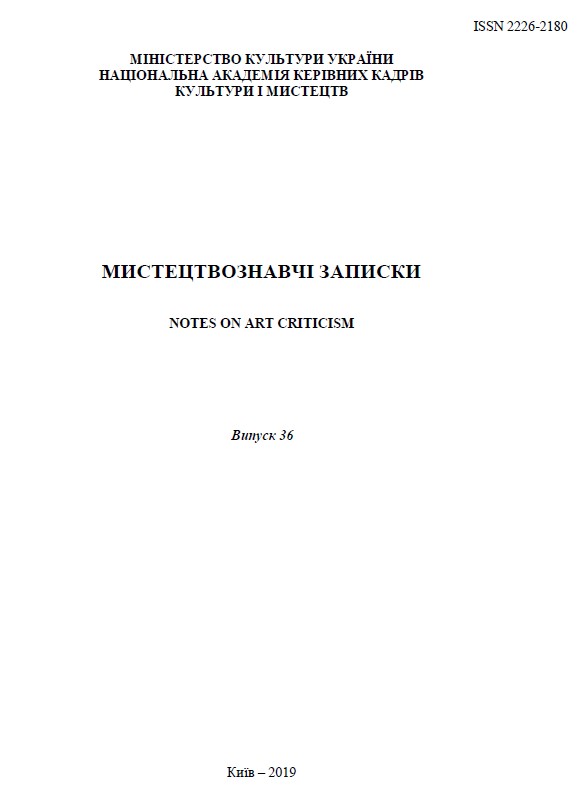СЛАВОСЛОВНИЙ АСПЕКТ ПОЕТИКИ РЕКВІЄМУ «LUX AETERNA» М. ШУХА В РУСЛІ ДУХОВНИХ ТРАДИЦІЙ УКРАЇНСЬКОЇ КУЛЬТУРИ
THE GLORIOUS ASPECT OF M. SHUKH’S REQUIEM «LUX AETERNA» POETRY IN THE LINE WITH THE SPIRITUAL TRADITIONS OF UKRAINIAN CULTURE
Author(s): Anzhelika Anatoliyivna TatarnikovaSubject(s): Christian Theology and Religion, Cultural history, Customs / Folklore, Music
Published by: Національна академія керівних кадрів культури і мистецтв
Keywords: Requiem of M. Shukh; requiem; praise; Ukrainian culture; new religiosity;
Summary/Abstract: The purpose of the article is the manifestation of the poetic and intonational uniqueness of Requiem «Lux Aeterna» of M. Shukh in line with the peculiarities of the implementation of the glorious Christian tradition. The methodology of work is based on the intonation concept of music from the perspective of intonational-stylistic, etymological analysis, inherited from B. Asafiev and his followers, as well as on interdisciplinary and historical-cultural approaches. The latter allows us to identify the spiritual, semantic and stylistic specifics of Requiem M. Shukh, not only in the context of the individual author's style of the composer and his attitude but also the evolutionary paths of Ukrainian spiritual culture. The scientific novelty of the work is determined by its analytical perspective, taking into account both the individuality of the author's position of M. Shukh in translating the heat model of the Latin requiem and its correlation with the spiritual attitudes of Ukrainian culture. Conclusions. The poetical and intonational uniqueness of Requiem «Lux aeterna» by M. Shukh reveals the originality of the author's intention. On the one hand, the work is structured by a text model of the Latin requiem and the Renaissance tenor mass. On the other hand, the author excludes from him such an essential component of the genre as the «Dies Irae» sequence, which constituted the culmination of the drama center of the author's requiem samples in modern times. Its absence is compensated in the Requiem of M. Shukh by the concentration on the images of Light, Peace, Praise, which is recorded both in the title of the work («Lux aeterna») and in the introduction of the text «Gloria,» which was generally absent in the structure of this genre. His glorious semantics in conjunction with the figurative melodic redundancy of «Sanctus» and «Lux Aeterna», derived from the traditions of Gregorian, Byzantine singing and the Orthodox monody, form the leading intonation-semantic complex of the whole work, metaphorically accompanying the spiritual ascent of man to God, Eternity. We note at the same time that this complex is deprived in the product of the traditional attributes of the Glory – vivid dynamics, texture, performing «mass,» the dominance of trumpet «voices,» etc., and represents «silent praise.» A similar intonational-semantic «dominant» of the work of M. Shukh also reveals his connection with the profound spiritual traditions of the Ukrainian worldview («Kyiv Christianity») and his «ethical law,» as well as with the spiritual searches of the postmodern and its representatives.
Journal: Мистецтвознавчі записки
- Issue Year: 2019
- Issue No: 36
- Page Range: 198-204
- Page Count: 7
- Language: Ukrainian

